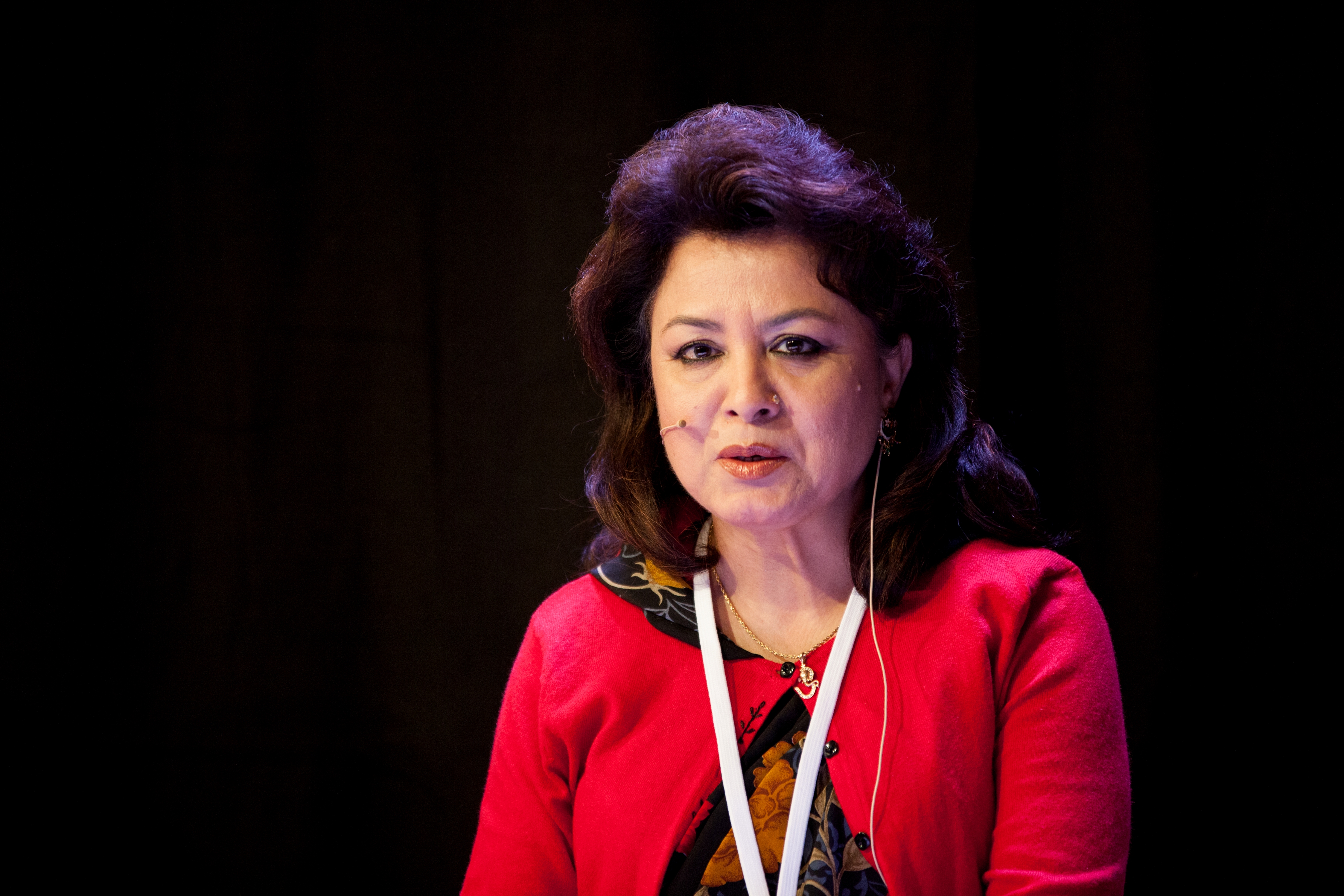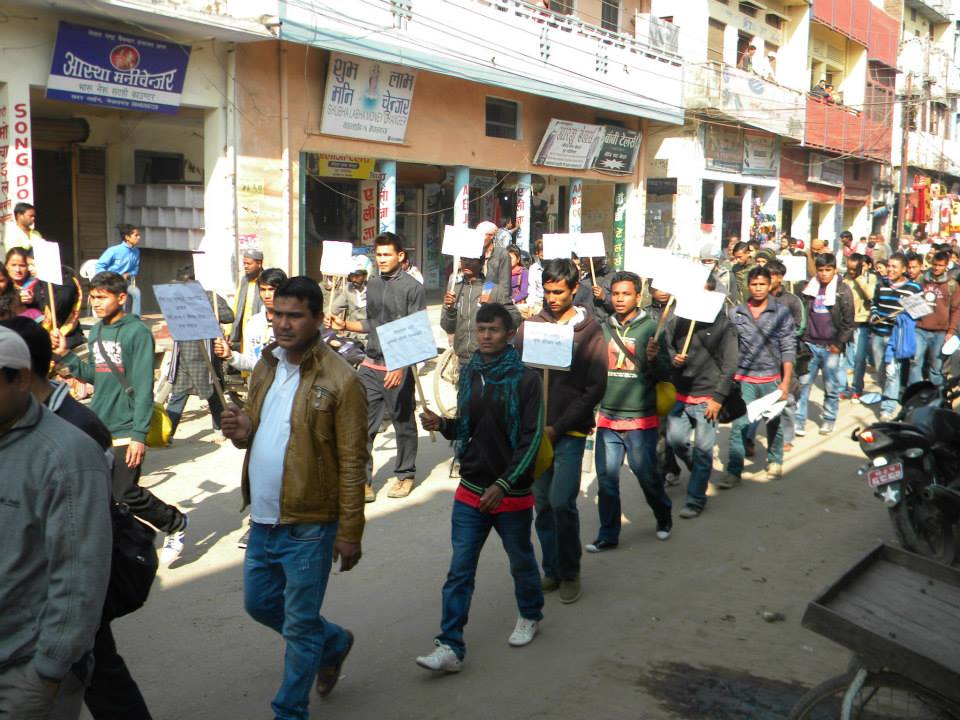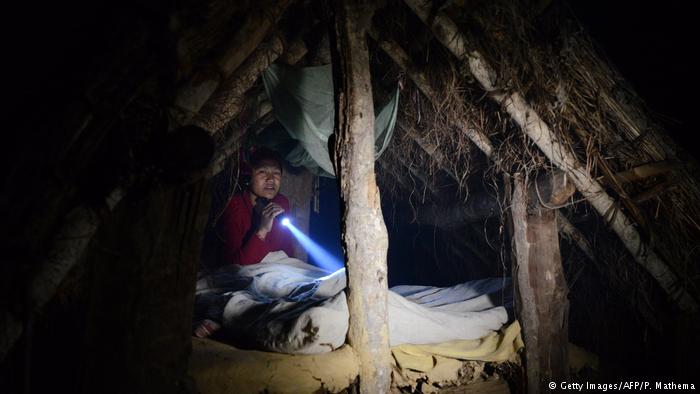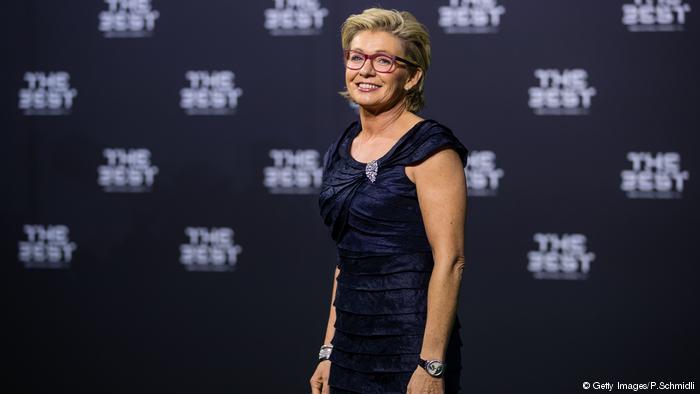Footballers in Nepal Warm Up to Gender Justice

Bandana Rana, President of the Nepali non government organisation, Saathi, has reached out to footballers in the Himalayan nation in a bid to involve them in the struggle for gender justice. (Credit: Julie Lunde Lillesæter\PRIO
Talking about ‘real men’ and helping young men to discover their potential to contribute to a better societ is a challenge so Bandana Rana has roped in Nepal’s men in the struggle for gender justice. Having collaborated with the All Nepal Football Association, Rana, who is President of the Nepali non- government organisation, Saathi, has shown how footballers from around 500 clubs in the Himalayan nation can learn skills for societal team building. In a one-on-one with Anita Katyal she elaborateson her work in Nepal and shares her experiences.
Q: Women’s organisations across the globe have traditionally focused on women and their empowerment. When did the idea of reaching out to men first surface?
A: The 1994 Cairo International Conference on Population and Development spoke of involving men in the area of reproductive rights. This was taken forward in the following year at the Fourth World Conference on Women in Beijing. I was a young activist then but we were told about the discussions and debate, which took place behind the scenes, on the issue of engaging men in the ongoing struggle for gender justice. There was apprehension that women would lose the space they had carved out for themselves. In the end, it was recognised that men had to be roped in to bring about real transformation. They had to be made part of the solution.
Eventually, the Platform for Action adopted at the Beijing conference made a special mention about involving men in gender equality. For the first time, women broadened men’s role to include shared responsibilities at home and at the work place. In the initial years of the movement, we were trying to build the capacity of women. But now the message about engaging with men has gradually spread as a number of organisations have started working in this area.

Footballers from several clubs in Nepal took to the streets to show solidarity in protest against violence against women. (Courtesy: Saathi)
Q: But how do you engage with men without putting down women or frittering away the gains made by women’s groups?
A: We have to make sure that we do not end up pleading for support from men; it should not look as if we are seeking a great favour from them. In such a case, we would only reaffirm male supremacy. It has to be a partnership – men and women have to be equal allies in this quest for gender justice. We have to tell the men what is in the alliance for them, how they can benefit from it. This transformative work should take place in a big way. It should reach out to the masses.
Q: Can you tell us about your work in this field in Nepal?
A: One of the objectives in the Nepal government’s National Action Plan for Women is to create a critical mass of men and boys who will be sensitive to issues of gender justice. When my organisation, Saathi, started looking at how this could be achieved, we identified the most popular sport among men and boys in Nepal, which is football. So we signed a Memorandum of Understanding with the All Nepal Football Association, which is a powerful and well networked organisation of clubs across the country. It reaches out to young men and is generally known as a disciplined body. A message sent out by the chief here is easily accepted. For us, it was a case of minimum investment with maximum mileage.

Through several interactions, footballers from around 500 clubs in Nepal learnt skills for societal team building. (Courtesy: Saathi)
Q: How did you get your message across to the men and boys? Wasn’t it difficult to hold their interest?
A: We thought football was a good place to begin with. We got in touch with all the 500 football clubs in the country and asked them to spare one hour for us. Our suggestion was met with immediate resistance. Why would their members listen to us, especially when it was a subject in which they had no interest? We tried to convince them by telling them that so far they were idolised on the field but would now get an opportunity to be idolised off the pitch, as well. They reluctantly agreed to give us 30 minutes, instead of the one hour we had sought. When we got our chance to speak to the members of the clubs, we tried to grab their attention by giving details of the profiles of famous football players who believed in gender equality. We cited instances of players who had married widows and of one who did not allow his widowed mother to wear the symbolic white clothes. We spoke of them as real men.
Q: What was the impact of your campaign and how did it help shape attitudes on the ground?
A: We conducted several discussions and held a number of workshops for men and boys. Eventually, they started sharing their stories with us. One player told us that while he did help by washing clothes at home, he never went out to dry them as he felt he would be ridiculed by others in the community. After hearing us, he decided that he would not hesitate to go out and hang them to dry as he understood that there was no shame in doing that. We also distributed Tshirts printed with the message, ‘Respect women, be a real man’. A senior player admitted that women reacted positively to him when he wore the Tshirt. Many even came up to him to say that while they had perceived football players as being aggressive they had now revised their opinion.

To show their solidarity with the cause, footballers donned t-shirts printed with the message, ‘respect women, be a real man’. (Courtesy: Saathi)
Q. How have the grassroots women reacted to the idea of working with men?
A: Fairly positively. In fact, they encourage us to speak to them. An elderly woman recently approached us angrily and said, ‘… all this time you have taught me about my rights but I am compelled to live in a violent relationship as I have no education, no employment… I have nowhere to go’. She then turned around and told us, ‘why don’t you also talk to the men because they need to change their attitude towards women’.
Author: Anita Katyal
Editor: Marjory Linardy
This is a Women’s Feature Service Report.






